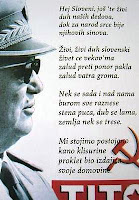Olivia D. Salamanca on Stamps

Salamanca earned her degree from theWomen's Medical College in Pennsylvania in 1910, making her the second Filipina to earn a medical degree from the U.S. She became the secretary of the Philippine Anti-Tuberculosis Society where she wrote its constitution and by-laws. She died shortly after that at the age of 24, of tuberculosis.
Olivia Salamanca (1889-1913) was a pioneer of her profession. Olivia Simeona Demetria Salamanca y Diaz was the second child of a well-to-do couple, Jose Salamanca, a colonel in the Philippine Revolutionary Forces, a pharmacist, and a signer of the Malolos Constitution, and Cresencia Diaz. Olivia was born on July 1,1889 in San Roque, Cavite where she spent her childhood.
She obtained her early education is a private school in Cebu where her father worked as a pharmacist. When the family returned to Cavite, Olivia studied in the Colegio de la Sagrada Familia in Cavite City and later at the Cavite High School where she completed the first two years of the secondary course.
When an examination for scholarship to the US was given in 1905, Olivia took it and was one of the two women awarded a grant. She enrolled in a high school in St.Paul, Minnesota and finished the secondary course at the Drexel Institute in Philadelphia. Although her original plan was to take up teaching, she shifted to medicine and was admitted to the Women's Medical College in Philadelphia in 1906.
During her second year in college she won a prize in anatomy. Being brilliant she finished the medical course in four years, obtaining grades that were above 90 percent. In 1910 she took and passed the civil service examination in the US. she also visited medical centers in New York and Washington D.C., BAltimore, New York City, Rhode Island, and Boston.
It was on July 24,1910, when Dr. Salamanca returned to the Philippines after a whole month's voyage. Upon her arrival she was appointed secretary of the Anti-Tuberculosis Society. She was so engrossed with her work that she became neglectful of her own health. She became a victim of white plague that she was sent to the Baguio Hospital to recuperate. She continued working in this hospital while undergoing treatment. when her condition did not improve, she was sent to Hongkong for treatment by the Lopez family of Batangas. however, her stay in Hongkong did not improve her health. She returned to Philippines and on July 13, 1913, she died at the age of 24.
As a tribute to this exemplary woman, a historical marker was installed by the Philippines Women's Medical Association at the Plaza Olivia Salamanca. A street in San Roque, Cavite and a ward in the Mary Johnston Hospital in Tondo, Manila, have been named after her.
The stamp was issued in May 18, 1989. Decade of Filipino Nationalism (Great Filipinos) I.






